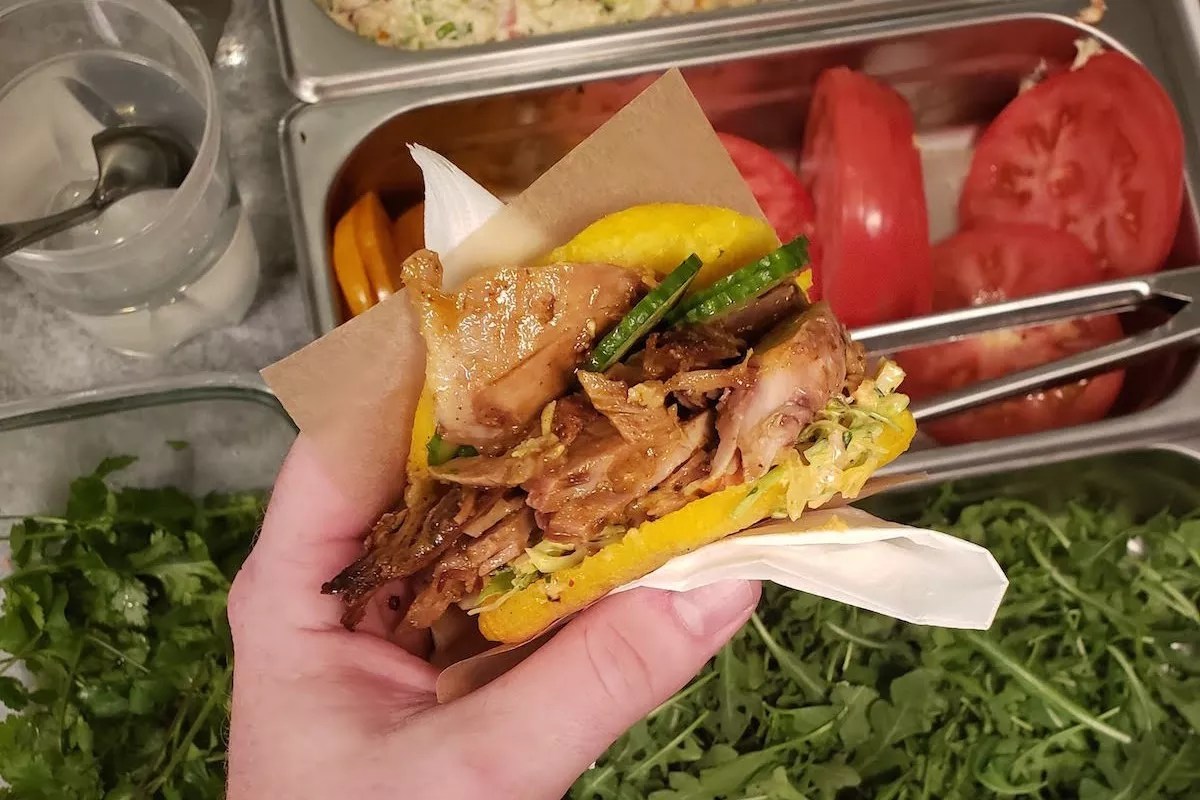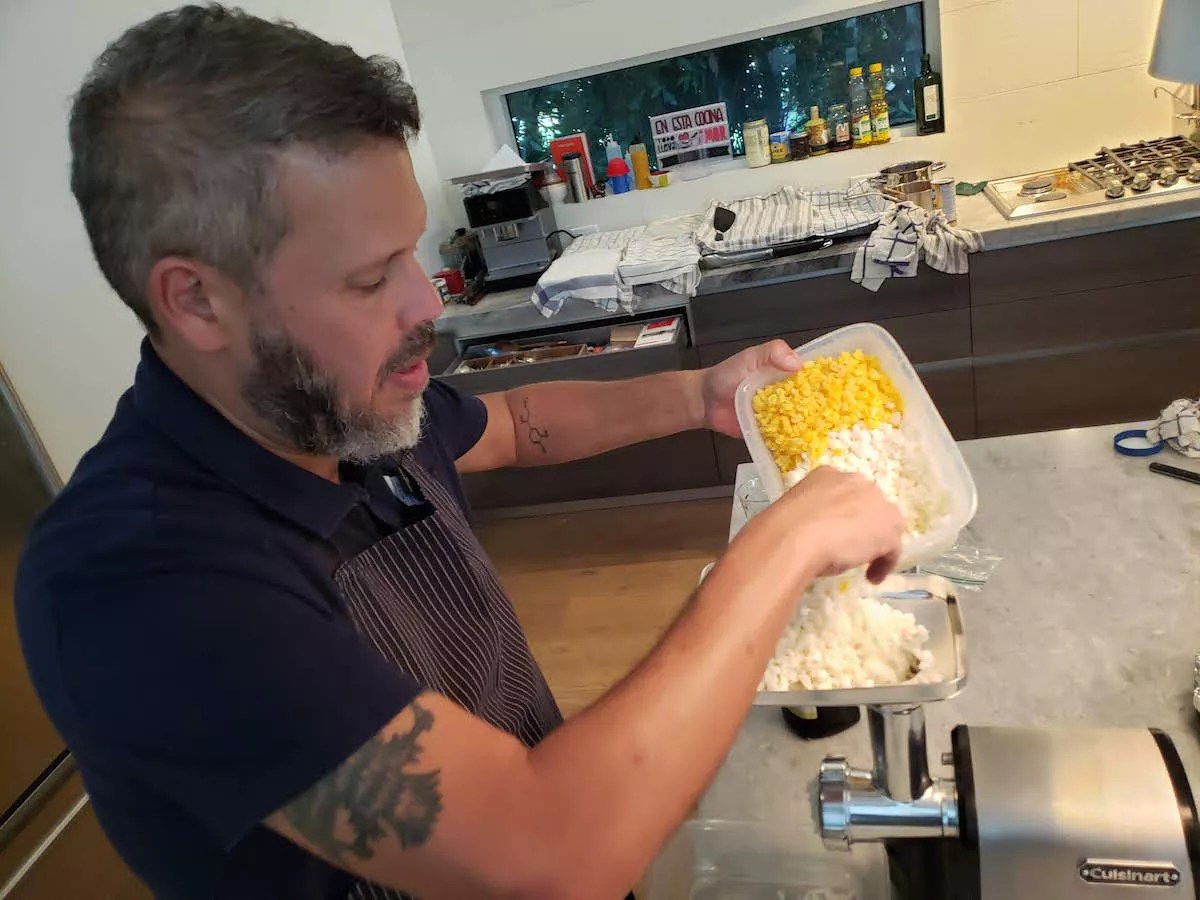
Photo by Zachary Fagenson

Audio By Carbonatix
Francisco Abenante, one of Venezuela’s most celebrated chefs, has managed to keep his Caracas restaurant, La Casa Bistro, afloat even as the country has descended into chaos. Now he’s planning a downtown Miami arepera, which is expected to open in late 2019, featuring arepas made from freshly ground corn stuffed with accoutrements. It’s all part of his plan to lure in the unfortunate slice of humanity that isn’t already obsessed with them.
The 47-year-old, who is now bouncing between Miami and Caracas, was recently in town to test some recipes and combinations ahead of the opening of Brasamasa, which will be located at 200 E. Flagler St.
Most of the arepa-eating world is used to the yellow or pale beige cakes made with yellow or white corn, respectively. Alongside these traditional offerings, Abenante will serve another flecked with bits of crispy pork skin, and a kind of superfood arepa speckled with quinoa. The process is relatively simple: Corn kernels are boiled and then passed through a grinder four times and mixed with salt and oil or lard, depending on the arepa.
“We have modern equipment, but this is the way the indigenous ate what we call arepas,” Abenante said. “Harina PAN didn’t exist.”

Chef Francisco Abenante grinding corn.
Photo by Zachary Fagenson
As far as the fillings go, don’t expect Venezuelan classics like the chicken-and-avocado salad called reina pepiada, or the salty cheese and black bean combination dubbed domino. Instead Abenante seems to draw inspiration from flavors and textures of American barbecue.
A white corn arepa is stuffed with fat slices of slow-smoked beef brisket topped with avocado and tomato. Another with pulled pork and cole slaw is spot on, and the yellow arepas crunch draws the sanctity of Martin’s Potato Rolls into serious question. The most interesting was a crab salad, and the natural sweetness of the sweet chilled meat brightened with a bit of citrus was the perfect match for yet another hearty arepa.
The only drawback of all this is the circumstances that led Abenante to open a restaurant. Like his friend Carlos Garcia of Obra and Alto in Caracas, his food and high profile has given him the ability to maintain a restaurant.
“We are able to do it because despite the situation in Venezuela, there are still people with money who can and still eat at restaurants,” Abenante said. “We’re able to do it because we butcher whole animals in house, we make all of our breads, and nothing goes to waste.”
Still, there’s a slight sting when you realize the only reason this food is in Miami is because a pair of overfed madmen spent the past three decades enriching themselves, their families, and their friends at the expense of what was once South America’s most prosperous nation.
Brasamasa. 200 E. Flagler St., Miami. Opening in late 2019.